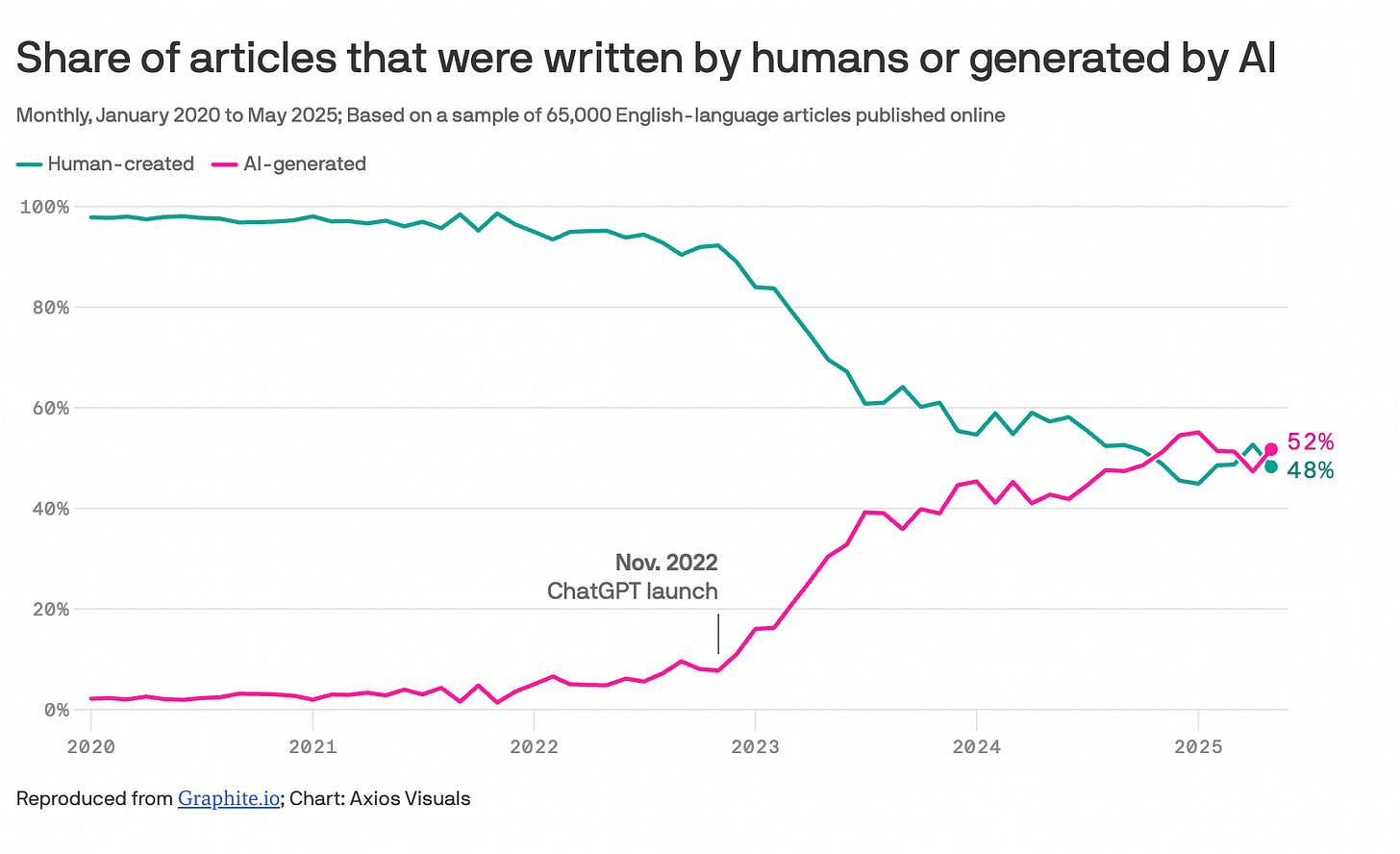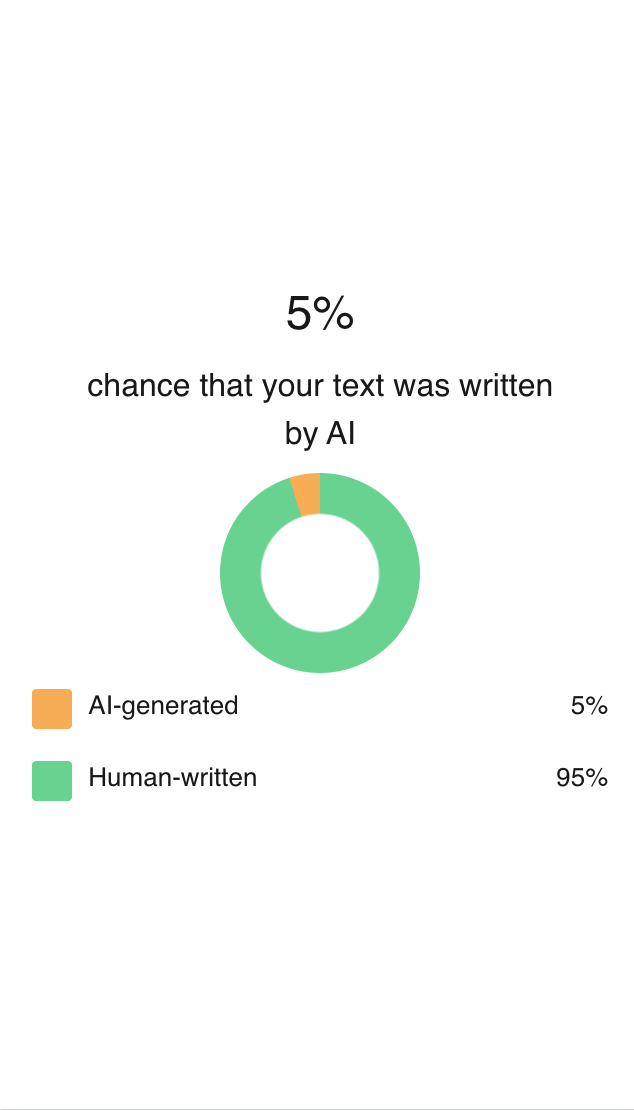Subject Matter's Writing Manifesto
The Botoxication of Language & Why I want to Talk About This
The written word around us is too perfect. Perfect sentences with perfect diction and a ton of em dashes. This phenomenon, that I’d like to call the “botoxification” of language, makes it now impossible to differentiate between AI-writing and a human written piece.
Today, we’re exploring how our writing reaches you in the era of AI. Openness guides everything we create. I don’t want to produce just another thought piece - our writing should sound and feel uniquely ours.
To begin, here’s a look at who’s tapping into AI for their written work
Out of about 2,000 surveyed Substack publishers, here’s what they found:
45.4% said they’re using AI
52.6% said they’re not
2% were unsure
Publishers 45 years and over were more likely to use AI than those under 45 years.
Men reported higher adoption than women (55% vs. 38%).
Women were more likely to express concerns about using AI than men (67% vs. 47%).
You can read the details of Substack AI Report, here.
Surveyed publishers said they’re primarily using AI tools for knowledge work (research, writing assistance, ideation) rather than for content generation. Of generative use cases, image generation was the most common, at 41%.
These publishers don’t always see LLMs as distinct from their innate creativity, sometimes describing them as a kind of mirror. One creator said that the tool “remembers my way of articulating ideas.” Another wrote, “It reflects back to me my voice and streamlines my creative vision.”
Why we want to talk about this
The share of articles written by AI on the internet is continously on the rise.
The graph is from a study conducted by Graphite, using an AI detector to analyse a random sample of URLs from Common Crawl, which is an open source database of over 300 billion web pages.
The database spans 18 years and adds 3–5 billion new pages monthly, so it was a vast quantity of data that was analysed and the articles were deemed AI-generated if 50% or less of the content was found by Surfer to have been written by a human.
Instead of adding to the pile of AI-slop, here’s a glimpse into how we actually write around here.
Subject Matter’s Writing Manifesto
Everything starts with the belief that : “Our writing is a gateway to critical-thinking.”
Subject Matter started as an anthropological exploration of fashion and crafts- Our compass remains fixed on elevating human creativity and rigorous analytical thought in everything we publish.
Our writing is investigative, research-oriented and painstakingly thorough. We thrive on our deduction - committing to uncovering the realities behind cultural phenomena.
We use AI-tools minimally. AI tools are used for deep research to support lived-in professional experience and replenish other sources. Additionally AI tools are used for editing the length of content, such as, summarising, improving sentence structures and editing the word count - never replacing human judgement or intuition
Co-creation with AI is not our current path. We acknowledge AI’s transformative potential but root our practice largely in human ability.
We never enter sensitive or proprietary data into AI systems. Our authorship and our sources are protected by design.
Subject Matter is a place for contestation and dialogue. We welcome intellectual challenge, especially on issues intersecting diverse cultural frameworks. Our perspective is open-ended, inviting debate in an effort to foster a deeper discovery of the world.




